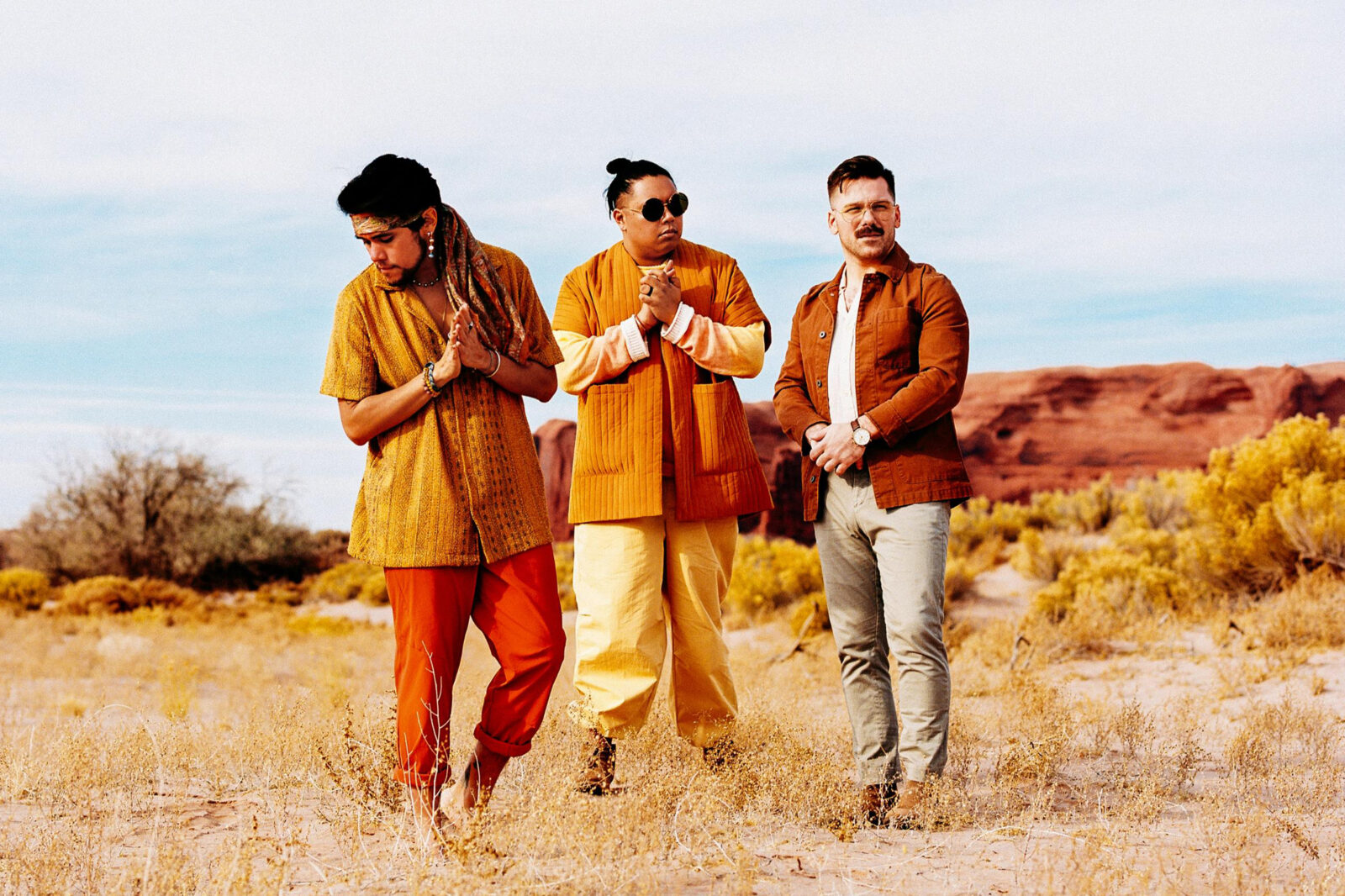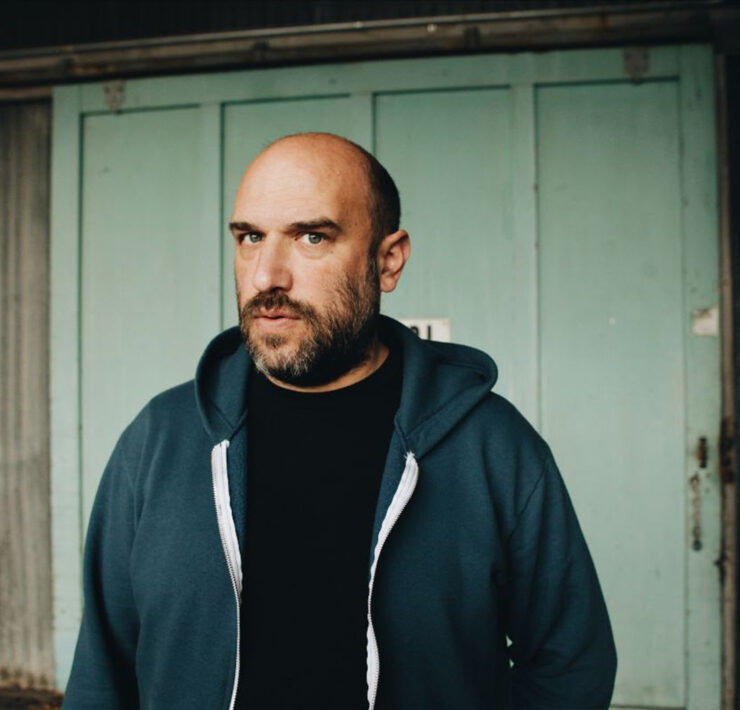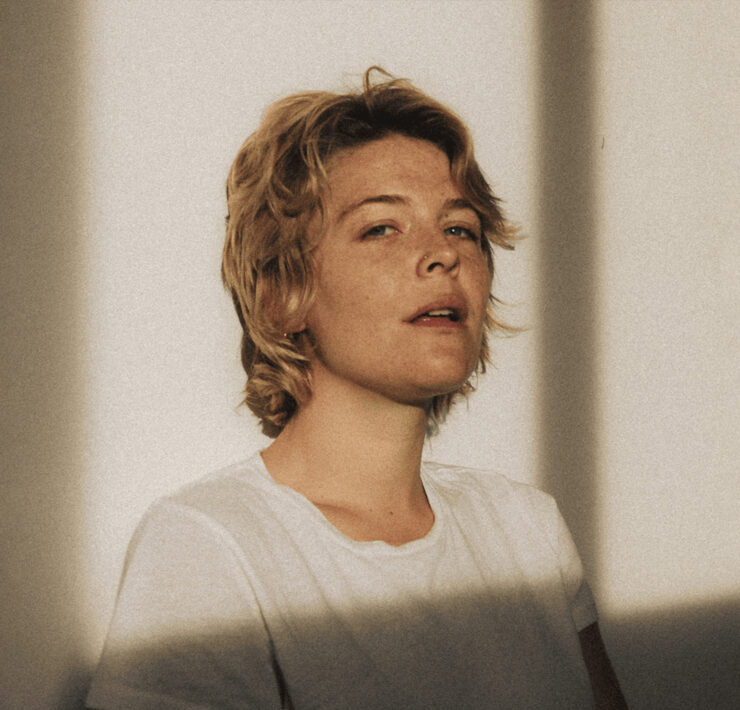Zachary Charles, Nathan Esquite and David Labuguen—members of indie rock band ARIZONA—are going through a bit of an existential crisis.
Well, maybe not a full-blown crisis. But the band has been on an existential journey over the last few years, and it’s all detailed in their new self-titled album.
“I think the pandemic put a lot of things in perspective for a lot of people, and we were no exception,” said lead vocalist Charles.
In a wide-ranging conversation, ARIZONA opens up about their growth as artists, the creative process behind their latest album, and the recurring themes that tie their songs together: change, reflection and the existentialism that emerged during the pandemic.
The band reveals the creative process behind their thought-provoking and introspective songs, while injecting their signature fun, energetic and witty style.
How do you feel like you’ve changed as artists over the years?
Labuguen: I think we changed in the way of letting go. We had such a strong desire to feel like how we felt when we first started. You know, before this we were all producers and songwriters.
ARIZONA was supposed to be our artist project that died after, like, three songs. Thankfully it didn’t, and now we’re here.
I kind of asked myself the other day, ‘OK, now that you’re here, what do you want out of this?’ And I think since the pandemic, we’ve all just come back to wanting to have that same kind of vibe from when we first started.
I think we care a lot about our creativity, and we care a lot that what we put out into the world feels true to us. But at the same time, I think we’ve learned to let go of a lot of things that honestly didn’t even really matter. That’s part of us getting older and fighting our perfectionism, because ultimately that can really just be a path to procrastination.
What was it like creating your new album?
Labuguen: This album is funny in the sense that a lot of the songs were written in different stages. Some of them were written when we were getting off the road in early 2020, and we were trying to finalize the album around then. But then the world shut down, and that opened up an opportunity for us to revisit a lot of songs that we loved but never really found a home for in our previous albums. Or maybe like a song that we loved certain parts of, but couldn’t really break through to getting that feeling that it was finished. We really gave each other space to go down tangents and then come back together in a way that I feel we haven’t really done before.
Charles: We let the process have space. We had more time, too, for better or worse. I think even if we didn’t necessarily have the time, if we weren’t given the time by circumstance, I think we probably would have taken it anyway. I think it was about that time that it was big for us to try those things that we knew we needed to explore, but never really got the chance to because of how busy things were pre-COVID.
And when it comes to the way that we were doing it before COVID, we were just racing ourselves, and that didn’t produce any results. Nobody gets ahead when you’re racing yourself, really. So slowing down and trying to figure out where that space came from was a good process for us moving forward.
Is there a recurring theme or story that connects all the songs together on this new project?
Labuguen: If I had to identify a common thread throughout the album, it would be a life-and-death existentialism. Seriously.
It’s been a long time since we’ve been out and about, releasing music and touring. This has led many people to ask, “Are you guys still around? What are you guys up to?”
The album artwork features us holding gravestones. When we started ARIZONA, we were at the end of one chapter in our lives. We were working as creative contractors for other people, and we were so burnt out from pouring our heart and soul into things that weren’t ours. We thought we would just get desk jobs.
Now, it’s funny to think that some people have forgotten about us. But we’re not dead yet! We’re picking up these gravestones and moving on to use this music to help others.
What’s up with all the existential dread?
Charles: I think the pandemic put a lot of things in perspective for a lot of people, and we were no exception. I mean, we came off the heels of five or six years of living the craziest type of life possible, compared to the lives we had beforehand in some ways. It was a very big change, very opposite from what we’re used to, and six years straight of it. And then all of a sudden, we got another dose of this huge, big shift when COVID hit.
We had to take that time not just to create, but also reflect. You know, we were young guys that knew what we were doing in some ways and didn’t know what we were doing in a million other ways. We didn’t know we’d be learning in a very weird way over the next six years that we didn’t pick, it picked us.
I think you have a moment, like around when I turned 30, where you kind of wake up and you’re like, “How am I still here?” You know what I mean? You just kind of recollect everything that’s happened and you’re like, “How did I make it out of that?”
And it’s not necessarily a bad thing. It’s not like you want something to end up being broken or destroyed, but you’re just a little shocked that you’ve taken so little inventory of it over the years, the same way that we do with our own individual lives sometimes.
That creation of this album, I think, reflects that in many weird and maybe non-contextual ways.
What was the inspiration behind “Pray to God”?
Labuguen: In a weird way, we were writing this song about leaving Los Angeles. We were like, “Let’s air out all of our stuff about LA.”
I remember seeing the “Jesus Saves” sign downtown near the Ace Hotel. I grew up in a church, so that really resonated with me.
Personally, I’ve also gone through a bit of deconstruction, reconstruction and honing in on my own faith. There’s a little bit of a sense for me of killing the old self, refreshing and becoming something different.
I think that also rang true for us in an industry way. When you’re in Los Angeles, you’re constantly bombarded with the idea of success and fame. It’s easy to get caught up in that and lose sight of who you really are.
We came back to the East Coast, where things feel more genuine. We caught ourselves getting caught up in the LA lifestyle, and we had to take a step back and say, “This isn’t who we really want to be.”
I think that’s the message of the song. It’s about letting go of the old self and becoming the person you were always meant to be.

























